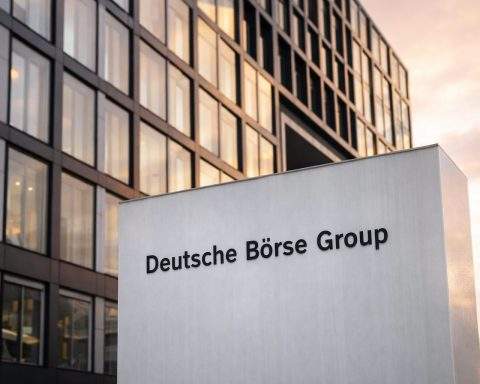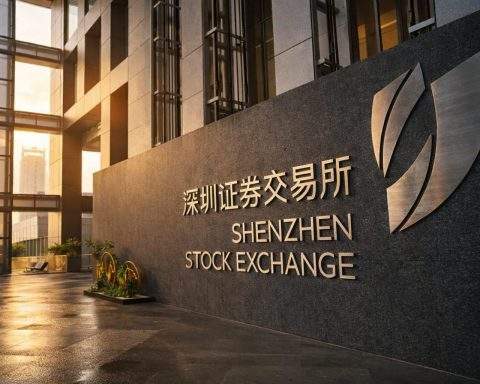- Series A Funding: Lyzr closed an $8 million Series A on Oct 29, 2025, led by Rocketship.vc and including backers Accenture Ventures, Firstsource, Plug and Play, GFT Ventures and othersinc42.com. The round also brought on board Henry Ford III (Ford Motor Co. board member) as a new directoryourstory.com.
- Agentic AI Platform: Lyzr offers an enterprise “Agentic Operating System” – a low-code platform (Agent Studio) for building and governing autonomous AI “agents” that automate workflowsnasdaq.comnasdaq.com. These agents can handle tasks like loan approvals, claims processing, compliance audits, and customer service, with security and compliance guardrails built innasdaq.combenzinga.com.
- AI-Driven Fundraising: Earlier this year Lyzr even let an AI program pitch its funding: its team touted a “first-ever agent-led” Series A, aiming to raise $15M by having an AI “agent” lead the investor outreachts2.tech. That novel strategy – essentially the startup using its own tech to market itself – made industry headlines.
- Market Traction: The startup claims heavy usage: over 1 billion AI agent simulations run and “over 1 million AI agents in production,” mostly for financial-sector clientschaincatcher.com. Key customers include NVIDIA, Under Armour, WTW (Willis Towers Watson) and top banks/insurerschaincatcher.cominc42.com. About 70% of clients are in finance, per the company. Lyzr reported roughly $1.5 million in ARR and hundreds of monthly demos bookedinc42.com.
- Industry Trends: Agentic AI (autonomous AI agents) is gaining ground. A PwC survey found 79% of companies are already using AI agents, and roughly two-thirds report clear productivity gainspwc.com. Consultancies like ISG note that “enterprises are experimenting with and adopting early forms of agentic AI” and warn that “agentic AI will redefine enterprise operating models”ir.isg-one.comir.isg-one.com.
- Accenture Investment: On Oct 29, Accenture (NYSE: ACN) announced it made a strategic minority investment in Lyzr via Accenture Venturesnasdaq.com. This partnership will “facilitate cooperation in delivering agentic AI solutions” for Accenture’s banking, insurance and financial-services clientsnasdaq.com. Accenture is also adding Lyzr to its Project Spotlight accelerator for AI startups.
- Stock & Forecast: Accenture shares wavered around $253 after the newsnasdaq.com (one report noted ACN dipped ~2% intraday on Oct 29investing.com). Wall Street analysts remain broadly bullish: the 12-month consensus price target for ACN is about $287 (roughly +14% upside)tipranks.com, reflecting optimism on AI-driven growth.
Lyzr’s Innovative AI Platform and Funding
Lyzr is a New Jersey–headquartered startup (with its tech team largely in Bengaluru) building infrastructure for “agentic AI” – autonomous AI agents that can execute business tasks with little human oversight. In practice, Lyzr’s low-code Agent Studio lets companies design, deploy and manage AI agents that handle specific workflows. For example, a bank could spin up an AI agent to auto-approve routine loans, and an insurer could automate claims triage. Importantly, Lyzr embeds compliance and security “guardrails” into these agents. As Accenture’s Kenneth Saldanha explains, Lyzr’s tools “lets companies create secure, explainable and compliant AI agents that can automate decisions across workflows”benzinga.comnewsroom.accenture.com – a critical capability for regulated industries.
“The AI revolution will be won by enterprises that can safely move from promising prototypes to a governed, autonomous workforce at scale,” says Lyzr CEO Siva Surendirayourstory.com. He notes Lyzr is building the “essential infrastructure” to do just that – essentially, an operating system that stitches together many specialized agents into a cohesive system. (In Lyzr’s vision, this “Organizational General Intelligence” lets each new AI agent boost the intelligence of the whole companyyourstory.com.) IBM defines agentic AI as systems where multiple AI agents “mimic human decision-making to solve problems in real time,” achieving goals with limited supervisionibm.com. Lyzr’s platform is a concrete example: it helps business analysts or developers build agents that autonomously navigate data and applications. The company emphasizes its platform is LLM-agnostic (it can hook any underlying large language model) and comes with pre-built agents for common functions (customer service, HR, marketing, etc.)inc42.com.
This October, Lyzr leveraged all that to raise new capital. The $8M Series A was led by Silicon Valley’s Rocketship.vc, with participation from corporate and venture partners – notably Accenture Ventures (the investment arm of Accenture plc), as well as Firstsource, Plug and Play, GFT Ventures, Benhamou Global Ventures and the Partnership Fund for New York Cityinc42.comyourstory.com. (Disclosure: Investee Rocketship also backed earlier AI startups.) Henry Ford III – grandson of the automaker’s founder – is joining Lyzr’s board, underscoring the interest from industry heavyweightsyourstory.com.
Lyzr says it will deploy the funds to expand its product (including a voice-based agent-builder) and grow its engineering teaminc42.com. This aligns with a broader AI trend: companies are ramping up in automated automation. In India, for example, deeptech investment is surging (RIL/Meta’s $10B Jio AI deal, etc.), and analysts expect the AI market to reach tens of billions in coming yearsinc42.com. Lyzr’s focus on financial services is well-timed: ChainCatcher reports that the EU’s upcoming AI Act will classify systems like credit-scoring agents as “high-risk” by 2026chaincatcher.com, driving demand for compliance-ready AI solutions (exactly Lyzr’s pitch).
An especially eye-catching part of Lyzr’s story is how it sought funding. This summer the startup made headlines by letting an AI agent pitch investors. Tech media outlet TechStock² described Lyzr’s “public, AI-driven Series A” – an unprecedented move where “the startup plans to raise $15M by having an AI ‘agent’ lead its fundraising campaign”ts2.tech. The company openly promoted the round as the “first-ever agent-led funding round,” leveraging its own technology to reach more investorsts2.tech. In the end the closed round was $8M, but the stunt drew attention to Lyzr’s core tech. It’s a case of the company marketing via its product, and analysts say it could inspire other AI firms to get creative.
“Agentic AI” Goes Mainstream
Lyzr’s news arrives amid growing corporate enthusiasm for agentic AI. Research firms report that enterprises are moving beyond proof-of-concepts. The ISG Provider Lens report (Oct 27, 2025) observes that companies are “assembling the building blocks of autonomous intelligence” and increasingly embedding AI agents into operationsir.isg-one.com. ISG’s Chief AI Officer Steve Hall describes agentic AI as “a significant step beyond traditional automation, allowing systems to make contextual decisions and collaborate across functions”ir.isg-one.com. In other words, unlike simple scripted bots, these agents can act semi-independently across departments. Gowtham Kumar Sampath, ISG principal analyst, warns that “Agentic AI will redefine enterprise operating models” for companies that balance innovation with the right governanceir.isg-one.com.
The data backs it up: in PwC’s recent survey, 79% of organizations report already adopting AI agents, and about 66% of adopters say these agents have delivered clear productivity improvementspwc.com. Moreover, 75% of execs agree AI agents will transform the workplace even more than the internet didpwc.com. Still, ISG notes adoption remains uneven – most deployments today are narrow tasks like auditing or monitoring, and only a few firms have orchestrated full multi-agent systems. That means startups like Lyzr may find fertile ground helping companies scale pilots into enterprise-wide solutions. As Sampath put it, firms that pair “innovation with governance and talent development” will capture the upsideir.isg-one.com.
For finance and insurance firms – Lyzr’s target market – this comes at a time of urgent need to modernize. Many banks and insurers still handle core processes (loans, claims, underwritings) via manual systems. AI agents could speed these up dramatically. For example, Accenture’s press release notes that Lyzr’s Agent Studio could let insurers auto-approve routine claims and enable banks to vet loans automatically, all while maintaining compliancenasdaq.com. With built-in risk controls, the agents can generate audit trails or intervene when needed. (This addresses a common concern: 28% of businesses in the PwC survey cited trust in agents as a top worrypwc.com, which strong governance helps mitigate.)
Market Reaction and Outlook
The announcement of Accenture’s stake generated some market noise. On Oct 29 trading, ACN shares briefly slid about 2.1%investing.com, perhaps on profit-taking, closing around $253 on the NYSEnasdaq.com. (By mid-October Accenture had been trading in the mid-$250s, and analysts view the stock favorably.) According to TipRanks, Wall Street’s 12-month price target for ACN averages roughly $287tipranks.com, implying about 14% upside. That reflects confidence in Accenture’s overall strategy – it has been actively expanding AI and analytics capabilities (notably buying consulting firm Decho in September and partnering with big data players) – and investors seem to treat Lyzr as a long-term play rather than a quick profit.
Beyond Accenture, the broader enterprise AI services sector remains robust. Firms like IBM, HCL, Cognizant and others are also promoting autonomous agents services, as ISG’s report notedir.isg-one.com. In fact, Accenture itself was highlighted as a leader in agentic AI consulting. Analysts expect the market for these solutions to grow rapidly as more industries digitize. For Lyzr, the infusion of capital and strategic partnership should accelerate its roadmap. With roughly $1.5M ARR already, the startup will be watched as a potential AI unicorn in the making. One potential catalyst: if Lyzr can show measurable ROI for agents (e.g. X% reduction in processing time or headcount), that could trigger larger enterprise deals. Conversely, technology risks remain – large AI models can behave unpredictably, so Lyzr must prove its safety claims in the field.
Looking ahead, experts say demand for this class of AI will only increase. Companies are modernizing data architectures to feed agents in real time, and regulators are finalizing rules for AI. For instance, Europe’s new Code of Practice for AI (effective early 2025) and anticipated AI Act push firms to demonstrate guardrailsts2.techchaincatcher.com. Lyzr is betting its focus on “responsible, explainable AI” gives it an edge. If agentic AI does redefine business as predicted, startups like Lyzr – and their backers – could be at the forefront of the next wave of automation.
Sources: Industry news and press releasesnasdaq.comnewsroom.accenture.cominc42.comts2.tech; expert analyses and reportsir.isg-one.compwc.com; stock and funding datainvesting.comtipranks.comchaincatcher.com.









